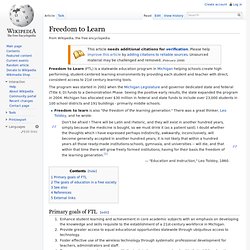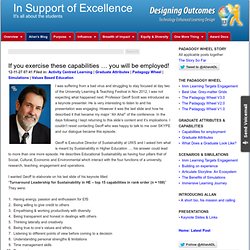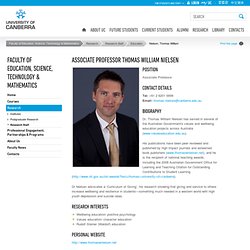

Freedom to Learn. Freedom to Learn (FTL) is a statewide education program in Michigan helping schools create high performing, student-centered learning environments by providing each student and teacher with direct, consistent access to 21st century learning tools.

The program was started in 2002 when the Michigan Legislature and governor dedicated state and federal (Title II, D) funds to a Demonstration Phase. Seeing the positive early results, the state expanded the program in 2004. Michigan has allocated over $30 million in federal and state funds to include over 23,000 students in 100 school districts and 191 buildings - primarily middle schools.
Freedom to learn is also "the freedom of the learning generation. " There was a great thinker, Leo Tolstoy, and he wrote: Primary goals of FTL[edit] FTL offers the training and resources necessary to transform schools—and it is doing just that. The goals of education in a free society[edit] See also[edit] Sudbury Model of democratic schools References[edit]
Big Picture Education Australia. 3 Ways To Turn Your PLN Into An Active Learning Network. There’s a lot of fuss being made about the Personal Learning Network (PLN) these days . I know it isn’t a new idea. For years, teachers have taken personal time and initiative to connect, learn and expand their professional skills. In some schools this is easier than others. Many of us work in schools that do not give a lot of personal learning time – and instead favor group Pro-D. Others have the freedom to spend much more time on personally designed pursuits.
Enter Twitter. From Passive To Active All that said, a PLN doesn’t end with following people on Twitter. 1) Try Something New From Your PLN It may be taking something that is shared with you, using it, testing it, maybe even adapting it and then, and this is the most important part, offering up your view/experience with it to the Twitterverse. 2) Attend (And Participate!) I admit that some of these chats are so big that the ability to put in ideas, and even see what’s going on is difficult. 3) Actually Check In On a Regular Basis. This Is How Mobile Social Learning Really Works. We talk about mobile social learning a lot. Like, probably an unhealthy amount. The Edudemic audience is pretty sophisticated so sometimes we just start talking in terms that many probably don’t completely understand. That’s our fault. We don’t always explain things in complete detail. We’d like to fix that. In an effort to educate you about what mobile social learning is, we wanted to share this awesome flowchart made by the iPad4Schools folks.
Educational sustainability. I was suffering from a bad virus and struggling to stay focused at day two of the University Learning & Teaching Festival in Nov 2012, I was not expecting what happened next.

Professor Geoff Scott was introduced as a keynote presenter. He is very interesting to listen to and his presentation was engaging. However it was the last slide and how he described it that became my major “Ah Aha!” Of the conference. In the days following I kept returning to this slide’s content and it’s implications. Geoff is Executive Director of Sustainability at UWS and I asked him what is meant by Sustainability in Higher Education …. his answer could lead to more than one more episode. I wanted Geoff to elaborate on his last slide of his keynote titled “Turnaround Leadership for Sustainability in HE – top 15 capabilities in rank order (n = 188)” They were: These were dentified from an International project being run around the world from effective practitioners.
Relational Learning in Education. Inspirations. Alternative education. Fontan Relational. Thomas W Nielsen, Phd. Waldorf education. Values Education. Associate Professor Thomas William Nielsen : Faculty of Education, Science, Technology & Mathematics. Position Associate Professor Contact details Tel: +61 2 6201 5699Email: thomas.nielsen@canberra.edu.au Biography Dr.

His publications have been peer reviewed and published by high impact journals and esteemed book publishers (www.thomaswnielsen.net), and he is the recipient of national teaching awards, including the 2008 Australian Government Office for Learning and Teaching Citation for Outstanding Contributions to Student Learning ( Dr Nielsen advocates a ‘Curriculum of Giving’, his research showing that giving and service to others increase wellbeing and resilience in students—something much needed in a western world with high youth depression and suicide rates. Research interests.